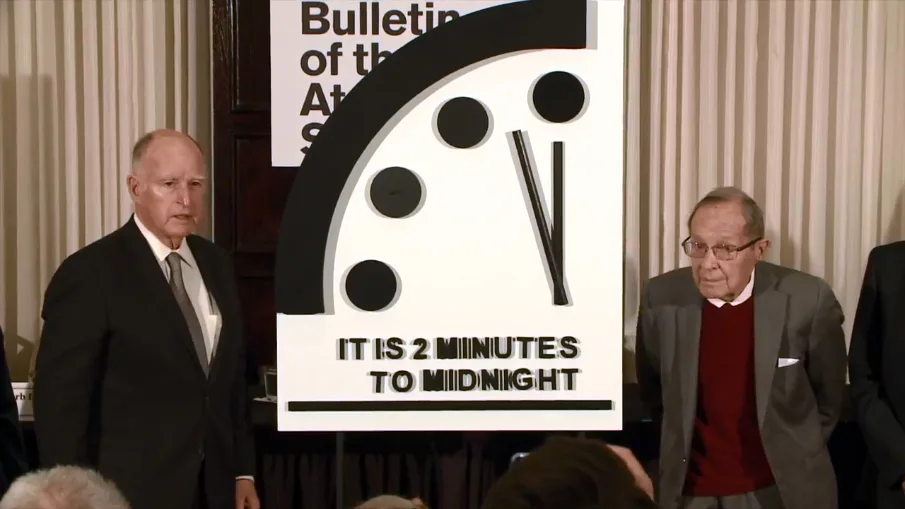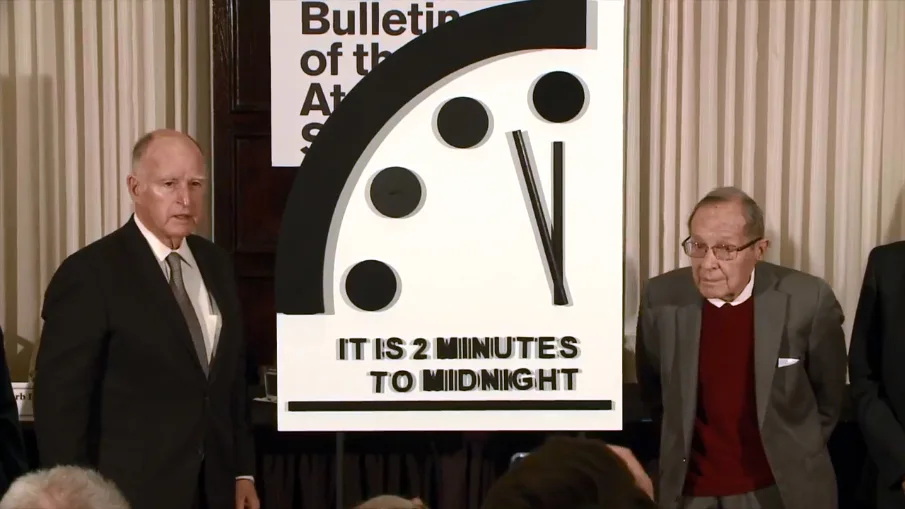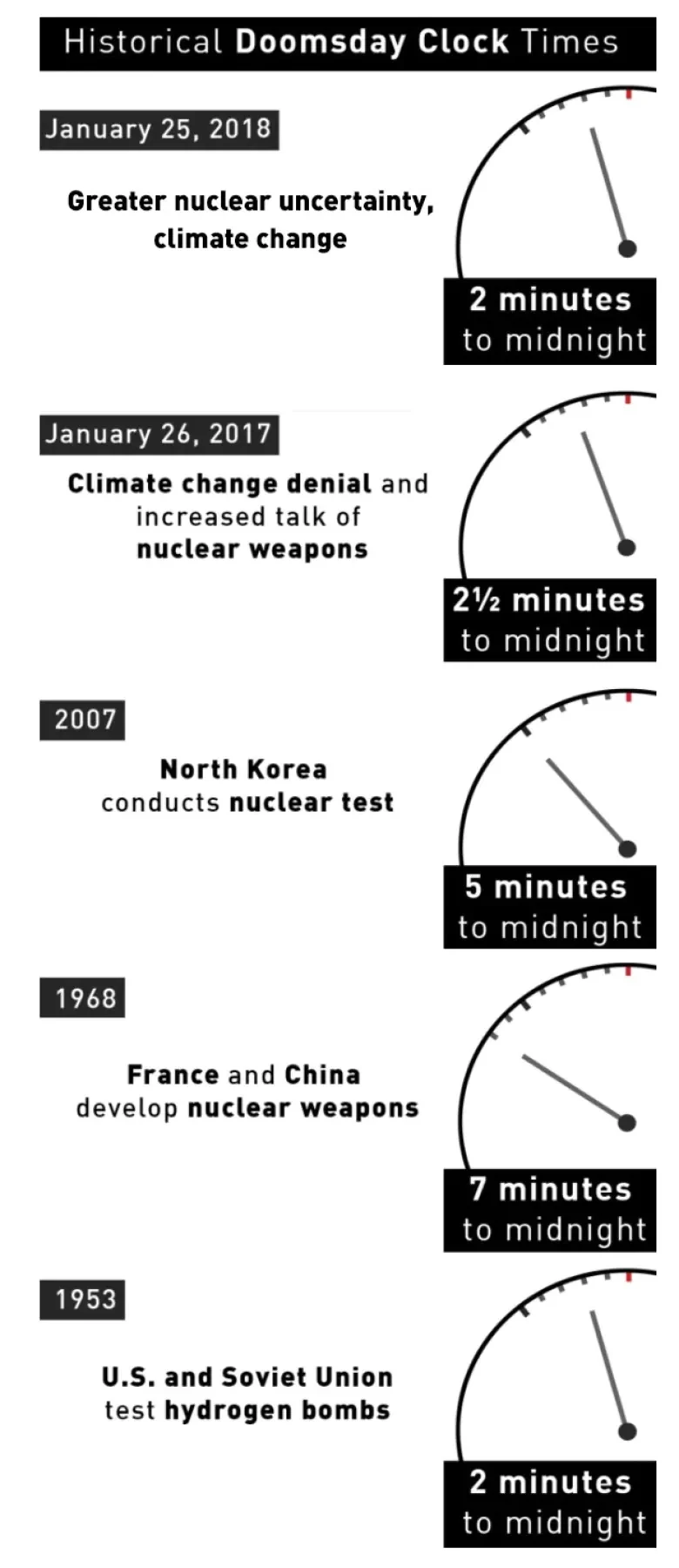
Doomsday Clock remains at 2 minutes to midnight

Former California governor Jerry Brown, left, and former U.S. secretary of defence William Perry unveil the Doomsday Clock during the Bulletin of the Atomic Scientists news conference in Washington, D.C., on Thursday. The Doomsday Clock remains at two minutes to midnight. Credit: Bureau of Atomic Scientists
The time on the symbolic Doomsday Clock remains at two minutes to midnight, the Bulletin of the Atomic Scientists announced Thursday morning.
Introduced in 1947, the clock is used as a metaphor meant to measure how close humanity is to destroying civilization. Its hands are moved forward or back depending on the world's level of vulnerability, with midnight representing catastrophe.
The clock typically moves by full minutes, but the non-profit group of scientists moved it by just 30 seconds in 2017 and 2018. It reached two minutes to midnight in 2018.
Though the clock did not move this year, Rachel Bronson, president and CEO of the Bulletin of the Atomic Scientists, warned it doesn't mean it is a good sign.
"We have in fact entered a period that we call the new abnormal," Bronson said. "This new abnormal that the world now inhabits is unsustainable and unsettling. We appear to be normalizing a very dangerous world."
The scientists said that in reaching their decision, they took several issues into account, including nuclear weapons, climate change and cybersecurity.
The last time the clock was set to two minutes to midnight was in 1953, when the United States and the Soviet Union were testing hydrogen bombs for the first time. The clock's hands were furthest from midnight — 17 minutes — in 1991, at the end of the Cold War.

William Perry, chair of the bulletin board of sponsors and a former U.S. secretary of defence, said the current setting invokes memories of 1953, a time when the "brutal" Korean War was ongoing, there were U.S. forces in Germany and the threat of the Soviet Union's Red Army was serious.
"What I'm telling you, you already know from history, but what I'm telling you I know because I was there," he said.
All the scientists on hand for the announcement reiterated Bronson's reference to the "new abonormal."
Jerry Brown, executive chair of the Bulletin and former governor of California had strong words for his country's government, citing the "blindness and stupidity of politicians and their consultants."
"We're like travellers on the Titanic, not seeing the iceberg up ahead but enjoying the elegant dining and music," he said.
He also called out journalists who are quick to cover Trump's tweets and exchanges but miss the bigger picture and the threat humanity is currently facing.
Brown, as well as the other scientists, stressed that their concern stems not from countries ready to engage in outright nuclear war but from the possibility of some "blunder" that results in a nuclear launch that could kill millions or perhaps billions of people.
One of the chief concerns for scientists is climate change. Bronson said that global carbon emissions, which seemed to have been plateauing in recent years, are now once again on the rise. And, she said, 2018 will likely be among the top four hottest years on record.
Herb Lin, member of the Bulletin's science and security board and senior research scholar for cyber policy and security at the Center for International Security and Cooperation at Stanford University, said that we have entered into age of "cyber-enabled information warfare," where incorrect, targeted information is widely distributed and potentially dangerous.
"It's a terrible world in which rage and fantasy replace the truth," he said.
All the scientists called upon global leaders to join together to combat the nuclear, climate and cyber threats and help turn the Doomsday Clock back.
"We're playing Russian roulette with humanity," Brown said.
This article was originally published on CBC.ca, by Senior Science Reporter Nicole Mortillaro.










